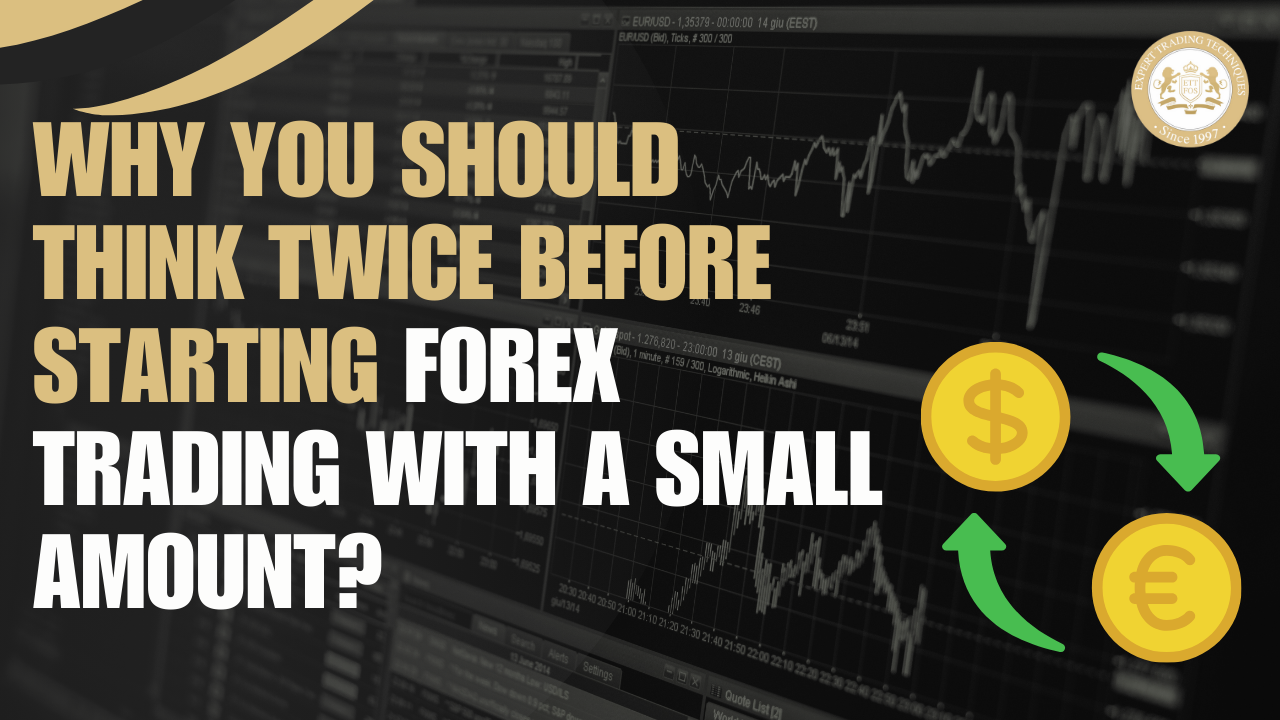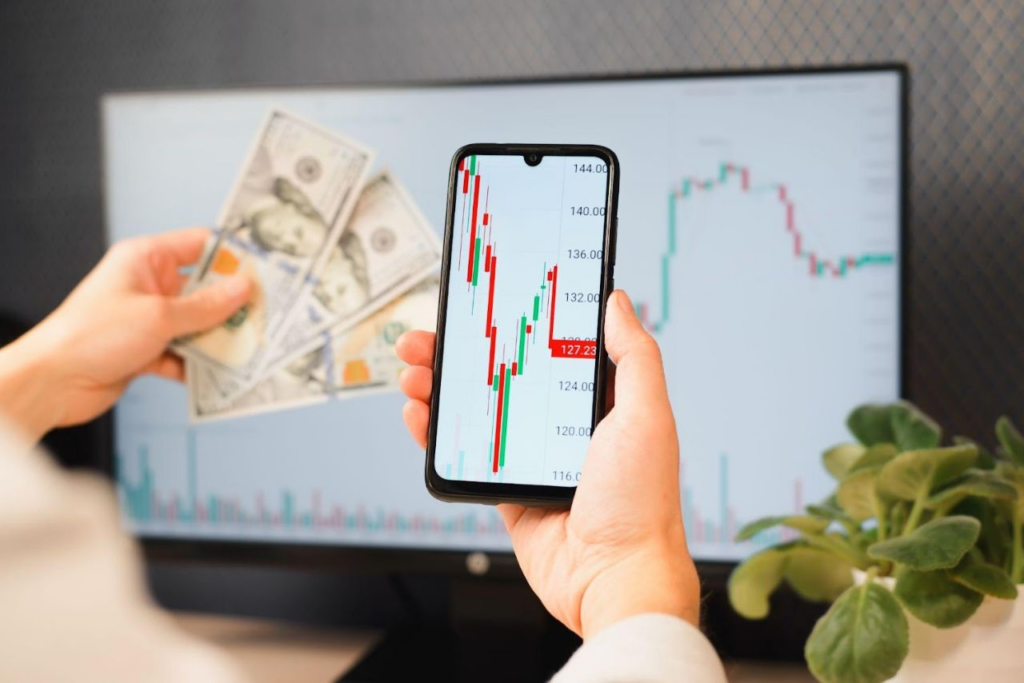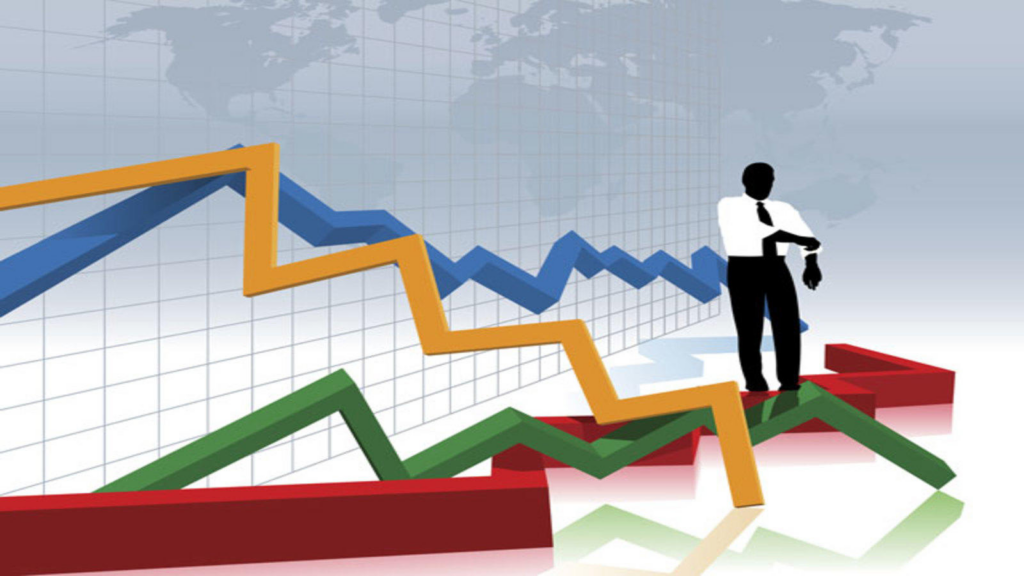
When I first dipped my toes into the world of forex trading over a decade ago, I was brimming with excitement and optimism. I thought that with just a small amount of capital, I could quickly turn a modest investment into a sizable fortune. After all, many people believe that forex trading is a quick path to riches. However, my journey soon taught me otherwise.
Forex trading, the buying and selling of currencies to make a profit, might seem like an accessible and potentially lucrative venture. The appeal of starting forex trading with a small amount of money is tempting, especially if you’re new to trading. It feels like a low-risk way to test the waters. But, from my experience, and the lessons I’ve learned along the way, starting with a small account can be more of a hindrance than a help.
In this article, I want to share some hard-earned truths about why starting forex trading with a small amount can be problematic. We’ll dive into the challenges that small accounts face and discuss practical strategies to help you navigate the forex market if your budget is tight. Whether you’re contemplating your first trade or looking to refine your approach, understanding these issues can make a significant difference in your trading success. Let’s explore why a small investment might not be the best start and how you can make smarter choices with your limited funds.
Also Read: Best Forex Trading Books

Forex trading involves exchanging one currency for another with the hope that the value of the currency you buy will increase compared to the one you sold. For example, if you believe the Euro (EUR) will strengthen against the US Dollar (USD), you would buy EUR/USD. If the Euro does strengthen, you can sell it later at a higher price and make a profit.
Forex trading can be appealing because it offers the potential for significant profits and operates 24 hours a day, allowing flexibility. However, it’s important to understand that it also comes with risks. It requires knowledge, practice, and careful planning. Starting with a demo account can help you learn without risking real money. As you get more comfortable with the basics, you can begin trading with real funds, keeping in mind the importance of managing your risks and continually educating yourself. Forex trading is an exciting and dynamic market, and with the right approach and tools, such as those provided by ETTFOS, you can start your journey confidently and effectively.
Also Read: Is Taking a Loan for Forex Trading a Wise Move for Forex Traders?

Trading forex with a small account can be challenging and comes with its own set of risks. Here’s a simple breakdown of what you need to watch out for:
When you start with a small account, your buying power is restricted. This means you can only trade smaller positions. Smaller trades limit your opportunities and make it harder to benefit from bigger market moves.
A small account is more susceptible to margin calls. This happens when your account balance falls below the required level to keep your positions open. If the market moves against you, you might quickly lose your funds or be forced to close trades at a loss.
Managing risk is tougher with a small account. It’s harder to set stop-loss orders that can protect your capital without risking too much of your account. You also have fewer options for diversifying your trades, which increases risk.
Trading with limited funds often leads to high emotional stress. The pressure to make quick profits can lead to impulsive decisions. This stress can affect your judgment and lead to poor trading choices.
Transaction costs, like spreads and commissions, take a bigger chunk out of a small account. A small trade can be heavily impacted by these costs, reducing your chances of making a profit.
Also Read: Can a 17-Year-Old with $100 Start Forex Trading?

Implementing risk management in forex trading can be tricky, especially for beginners. Here are some key challenges:
One of the main aspects of risk management is setting stop-loss orders to limit losses. However, finding the right level for these orders can be difficult. If set too close, they may trigger frequently, resulting in small, frequent losses. If set too far, losses can accumulate before the trade is stopped out.
Traders must carefully balance the potential risk with reward. With a small account, this balance becomes even more delicate. Risking too much on a single trade can deplete your capital quickly, while risking too little might mean missing out on profitable opportunities.
Risk management requires sticking to a plan and not letting emotions drive decisions. However, when faced with losses or the pressure to recover quickly, traders often make impulsive decisions, ignoring their risk management rules.
Market conditions can change rapidly, and risk management strategies need to be flexible. What worked in one market phase might not be effective in another. Adjusting your risk management approach to reflect current market conditions can be challenging.
Effective risk management requires discipline and adherence to your strategy. It’s easy to stray from your plan, especially after a series of losses or wins. Staying disciplined and consistently applying your risk management rules is crucial but often difficult.
Also Read: Is It Possible to Profit Consistently in Forex Trading?

When you start forex trading with a small capital, it can significantly impact how you develop and execute your trading strategies. Here’s how:
Small capital limits the types of strategies you can use. For instance, you may need to avoid high-risk strategies like large position sizing or frequent trading, which require more significant capital. Instead, you’ll need to focus on strategies that work within your budget, such as low-risk, conservative approaches.
With a smaller account, you can only take smaller positions. This means you have less room to adjust your trades or capitalize on larger market moves. Position sizing directly affects your ability to leverage trading opportunities and can limit your potential profits.
Trading with small capital often means fewer opportunities to diversify across multiple trades. Multi-trade strategies, which involve spreading risk across several trades, might not be feasible if you don’t have enough capital to manage several positions simultaneously.
Small capital can lead to tighter profit margins. Since you’re working with limited funds, even small transaction costs and spreads can take a bigger bite out of your profits. This makes it harder to achieve significant returns, especially after accounting for trading costs.
Also Read: Can Forex Trading Be Chosen as a Job?

When starting forex trading, the amount of money you need to start can vary depending on several factors. Here’s a simple guide to understanding the financial requirements:
Most forex brokers allow you to open an account with as little as $100 to $500. This is often called a micro or mini account. However, starting with such a small amount might limit your trading options and profitability.
Forex trading often involves leverage, which means you can control larger positions with a smaller amount of money. For example, with a 100:1 leverage, you can trade $100,000 worth of currency with just $1,000 of your own money. While leverage can amplify gains, it also increases the risk of significant losses. This is the best strategy to avoid loss in forex trading.
To trade comfortably and manage risk, many traders recommend starting with at least $1,000 to $2,000. This amount provides a buffer to handle market fluctuations and avoid margin calls, where you might be forced to deposit more money if your account balance falls below a certain level.
The more money you start with, the more flexibility you have in your trading strategy. Starting with a larger account can help you diversify your trades, manage risks better, and potentially see more substantial returns.
Also Read: How Did Forex Trading Change Your Life?

Trading with a larger amount of capital can offer several advantages:
With more money in your account, you have more freedom to take various trading positions and explore different strategies. This flexibility allows you to diversify your trades, which can help spread risk and improve your chances of making a profit.
A larger trading account provides a buffer against market fluctuations. You can afford to set wider stop-loss orders, which helps prevent getting stopped out prematurely during market volatility. This means you can handle losses better and avoid emotional trading decisions.
Bigger trades can lead to higher profits. For example, if you’re trading a larger position size, even small price movements can result in more substantial gains. This is particularly beneficial if you have a strong strategy and are confident in your market analysis.
With more capital, the relative impact of transaction fees becomes smaller. For instance, if you’re paying a fixed fee per trade, it represents a smaller percentage of your total investment when you’re trading with a larger account, reducing the overall cost of trading.
Many brokers offer better leverage and trading conditions to clients with larger accounts. This can include lower spreads, higher leverage ratios, and more personalized customer support.

Managing a large forex trading account is like steering a luxury yacht through a stormy sea—there’s power at your command, but navigating wisely is crucial. Here are some practical tips to help you harness that power effectively and sail smoothly through the forex market:
Think of your trading plan as your ship’s navigation chart. It should outline your goals, preferred trading strategies, and risk limits. For example, if you aim to capitalize on long-term trends, your plan should detail how you’ll identify and trade these trends. A detailed plan helps keep you on course and prevents hasty decisions during market turbulence. This is the advanced trading strategy pro traders use.
Just as you wouldn’t put all your eggs in one basket, don’t concentrate your trading capital in one currency pair. Spread your investments across various pairs and strategies. For instance, you might allocate a portion of your capital to high-volatility pairs like GBP/JPY while keeping some in more stable pairs like EUR/USD. This approach can help balance risk and reward.
Utilizing risk management tools is like having safety nets on your trading ship. Set stop-loss orders to automatically close positions if the market moves against you, and use take-profit levels to lock in gains. For example, if you’re trading USD/JPY and set a stop-loss 50 pips away, you protect yourself from severe losses if the market turns unfavorably.
Stay vigilant, like a captain constantly checking weather conditions. Regularly review your open positions and market trends. If you notice a significant shift in economic data, such as a surprise interest rate change by the Federal Reserve, reassess your positions to ensure they align with the new market outlook.
Keep your knowledge updated as if you’re always learning about new navigation technologies. Follow forex news, economic reports, and geopolitical developments. For instance, if a major trade agreement is announced, understand how it might impact currency movements and adjust your strategy accordingly. To deepen your understanding, consider exploring ETTFOS’s comprehensive forex trading courses. Their masterclass offers in-depth insights and practical training that can enhance your ability to navigate the complexities of forex trading with a large account effectively.
Even with a large account, excessive leverage can lead to dangerous situations. It’s like having a powerful engine but not knowing how to handle it. Use leverage conservatively to avoid amplifying potential losses. For example, if your strategy involves a 1:10 leverage ratio, ensure it aligns with your risk management rules and doesn’t expose you to excessive risk.
Trading with a large account can be stressful, much like piloting a yacht in a storm. Keep your emotions in check and stick to your trading plan. If a trade doesn’t go as planned, avoid panicking or making impulsive decisions. Stay calm and focused, and follow your pre-defined strategies and risk management rules.
Understanding the challenges and successes of small account traders can provide valuable lessons for those just starting out. Here’s a look at some real-life experiences that highlight the unique obstacles and strategies involved:
Trader: Sarah, a new forex trader with a $500 account
Sarah started trading with a small account, eager to make quick gains. However, she quickly faced challenges due to limited capital. She found that small trades meant higher transaction costs relative to her account size, and she struggled with the impact of even minor losses. Sarah learned the importance of patience and risk management. She began focusing on fewer, high-quality trades rather than chasing every opportunity, which helped her manage her losses better and slowly build her account.
Trader: James, who started with $1,000 and used a conservative approach
James approached forex trading with a clear strategy: he focused on low-risk trades and used conservative leverage. By sticking to well-researched trades and implementing strict stop-loss orders, he managed to grow his account steadily. His strategy involved setting small, achievable goals and avoiding risky high-leverage trades. This method proved effective as it allowed him to build his account gradually while learning more about market behavior and trading strategies.
Trader: Lisa, who turned $200 into $1,500
Lisa’s success story is inspiring. She started with a very small account and faced significant challenges, including high transaction costs and limited buying power. Despite these hurdles, Lisa focused on developing a strong understanding of technical analysis and market trends. She used demo accounts to practice without risking real money, which helped her refine her strategies. Her disciplined approach and patience led to significant growth, demonstrating that with the right strategy and persistence, even a small account can achieve substantial success.
Starting forex trading with a small amount of capital can be problematic due to limited buying power, increased risk of margin calls, and psychological stress. It’s essential to recognize these challenges and adopt strategies that suit your account size, such as using demo accounts for practice, focusing on low-risk strategies, and scaling up gradually. By implementing these strategies and maintaining a disciplined approach, you can effectively manage a small account and work towards building a more substantial trading position.
Thinking of starting forex trading with a small amount? Learn more about effective strategies and risk management before doing so to increase your chances of success. Explore our recommended resources and get started today at ETTFOS.COM!”
Yes, success in forex trading with a small amount is possible, but it requires careful planning, disciplined trading, and effective risk management. Starting with a small account means you need to be more strategic and focused on preserving capital while gradually building your skills.
Strategies that work well for small forex accounts include low-risk approaches such as swing trading and trend following. These strategies involve analyzing longer-term market trends and making trades based on those trends, which can be less risky and more manageable for small accounts.
Managing risk with a small trading account involves setting realistic goals, implementing strict risk management rules, and using leverage wisely. Limiting risk per trade to a small percentage of your account balance and avoiding excessive leverage can help protect your capital and improve your chances of long-term success.